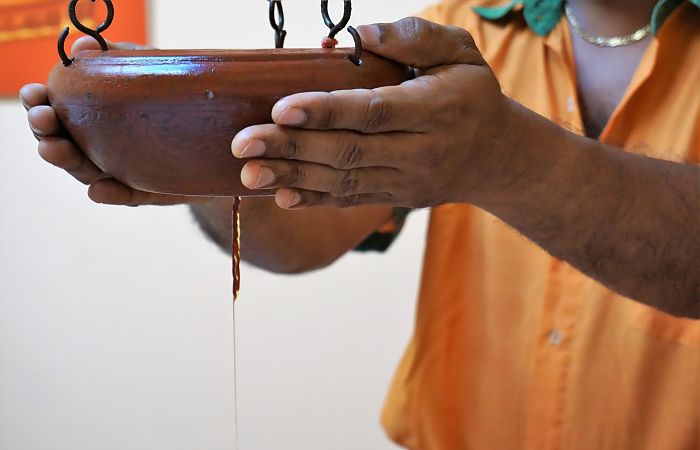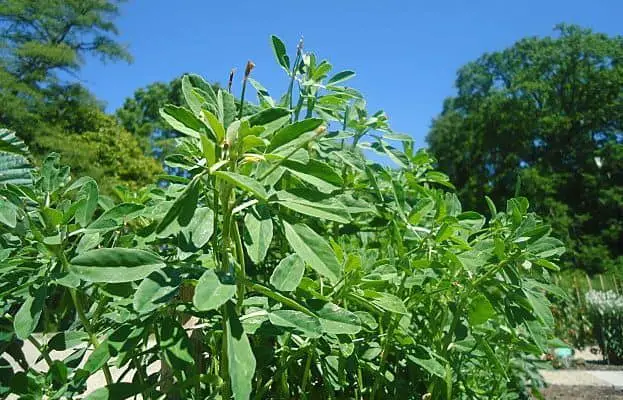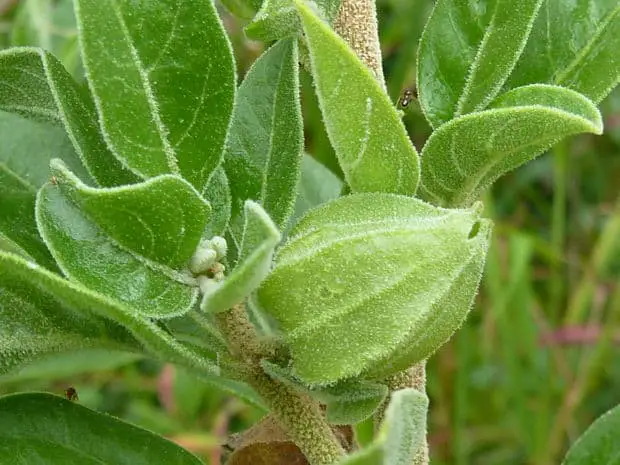This is a guest post. The information and opinions expressed are those of the author.
According to the International Diabetes Federation, an estimated 80 million Indians suffer from diabetes – most of them being afflicted with type-2 diabetes. Type-2 diabetes is classified as a chronic incurable disease that requires lifelong treatment. (1)
While anti-diabetic drugs have improved patient outcomes greatly, there is a growing need for natural treatments for 2 primary reasons – the risk of side effects from conventional drugs and the spiraling costs of pharmaceutical products.
When we look at natural treatment options, herbs offer the greatest potential for treating and managing diabetes naturally, helping reduce dependence on drugs.
Ayurveda offers a wealth of knowledge on indigenous herbs, which are already used as primary ingredients in a number of Ayurvedic medications for diabetes
Some of these herbs are also being investigated for their therapeutic potential so as to create drugs that can be used in conventional medicine.
Let’s take a closer look at some of the most promising herbs that you can use to control blood sugar levels and manage type-2 diabetes naturally.

The Best Herbs to Manage Type-2 Diabetes
1. Guduchi
Guduchi (Tinospora cordifolia) is one of the most highly prized herbs in Ayurveda, often referred to as ‘Amrith’, which means ‘immortality’.
Generally recommended as a nerve tonic, this herb has attracted plenty of attention from modern medical researchers for various potential therapeutic applications.
It is most promising as an antidiabetic, with several studies showing that active compounds in the herb improve insulin sensitivity, helping control glucose levels.
Findings published in the Indian Journal of Pharmacology also suggest that the herb may offer protection against diabetic neuropathy or nerve damage. (2) (3)
2. Cinnamon
While most of us today regard cinnamon (Cinnamomum verum) as nothing more than a flavorful spice, ancient Indians recognized its therapeutic value. In fact, the herb has a long history of use in both ancient Indian and Chinese medicine.
Adding cinnamon to your diet may help to control your blood sugar levels, as some studies show that the intake of cinnamon extract or whole cinnamon lowers fasting blood glucose levels. This can be helpful in the management of both pre-diabetes and diabetes. (4)
3. Tulsi
Tulsi or Holy Basil (Ocimum tenuiflorum) is one of the most important herbs in the Ayurvedic tradition and also in Hindu culture. The herb has an almost divine status, regarded as both therapeutic and spiritual.
Classified as a rasayana or rejuvenant, tulsi is an important ingredient in Ayurvedic medications to boost immunity and treat a variety of common conditions.
There is also growing evidence to support its use as a natural treatment for diabetes because of its hypoglycemic effect. (5)

4. Methi
Methi or fenugreek (Trigonella foenum-graecum) is a widely used herb in Indian cuisine, but it’s not one of the most popular foods because of its bitter taste.
If you’re worried about diabetes however, you should consider increasing your consumption of methi seeds as the fiber and chemicals in them could help prevent or delay the development of type-2 diabetes.
These findings were published in a 2015 study, which suggests that these beneficial effects are most likely a result of increased insulin levels, leading to a decrease in blood sugar levels. (6)
5. Karela
Because of its bitter taste, most of us regard karela or bitter melon (Momordica charantia) as unpalatable and we avoid consuming it as far as possible. Unfortunately, the Chinese proverb ‘good medicine tastes bitter’ rings true in this case.
Classical Ayurvedic texts have long recommended the use of karela to treat diabetes and there is some evidence to support its use.
Consumption of the juice, fruit, or extract has been shown to exert a hypoglycemic effect, reducing the need for diabetic medications. (7)
6. Jambul
Post-millennial generations may not be as familiar with jambuls or jamuns (Syzgium cumini), but they were a staple treat for the rest of us.
What most of us don’t know is that jambuls are possibly the cheapest natural remedy for diabetes.
Almost every part of the herb, from the seed to the fruit pulp, is now regarded as beneficial for anyone at risk or suffering from diabetes.
We have learned from research that jambuls can not only help to lower blood glucose levels but can also reduce blood urea and cholesterol levels while improving glucose tolerance. (8)

7. Ashwagandha
In recent years, ashwagandha (Withania somnifera) has become increasingly popular as a supplement to increase virility and to boost exercise performance and muscle growth. However, that’s only a fraction of what this wonderful herb can do.
One of the most valued ingredients in Ayurveda’s arsenal of herbs, ashwagandha can also help to control blood sugar levels naturally.
In fact, research shows that the herb doesn’t just exert hypoglycaemic effects, but it also has hypolipidaemic properties. (9)
In other words, in addition to controlling blood sugar levels, it also lowers the risk of heart disease, which is a major complication in diabetes patients.
Other Herbs That Might Be Useful for Diabetes Type 2
In addition to the herbs mentioned above, others like ginger, garlic, and vijayasar, also known as Indian kino tree (Pterocarpus marsupium), may also help in the management of diabetes.
Just remember that although Ayurvedic herbs and medications can help to control blood sugar levels, you should use them in consultation with your doctor if you are already taking diabetic medications.
Supporting References
- “IDF SEA Members.” International Diabetes Federation, 2018, www.idf.org/our-network/regions-members/south-east-asia/members/94-india.html
- . Sangeetha, M.k., et al. “Anti-Diabetic Property of Tinospora Cordifolia and Its Active Compound Is Mediated through the Expression of Glut-4 in L6 Myotubes.” Phytomedicine, vol. 20, no. 3-4, 2013, pp. 246–248., doi:10.1016/j.phymed.2012.11.006.
- .Nadig, Pratibha D et al. “Effect of Tinospora cordifolia on experimental diabetic neuropathy.” Indian journal of pharmacology vol. 44,5 (2012): 580-3. doi:10.4103/0253-7613.100380
- Davis, Paul A., and Wallace Yokoyama. “Cinnamon Intake Lowers Fasting Blood Glucose: Meta-Analysis.” Journal of Medicinal Food, vol. 14, no. 9, 2011, pp. 884–889., doi:10.1089/jmf.2010.0180.
- Chattopadhyay, R R. “Hypoglycemic Effect of Ocimum Sanctum Leaf Extract in Normal and Streptozotocin Diabetic Rats.” Indian Journal of Experimental Biology, vol. 31, no. 11, Nov. 1993, pp. 891–893., PMID: 8112763
- Gaddam, Arpana, et al. “Role of Fenugreek in the Prevention of Type 2 Diabetes Mellitus in Prediabetes.” Journal of Diabetes & Metabolic Disorders, vol. 14, no. 1, 2015, doi:10.1186/s40200-015-0208-4.
- Ghorbani, Ahmad. “Best Herbs for Managing Diabetes: a Review of Clinical Studies.” Brazilian Journal of Pharmaceutical Sciences, vol. 49, no. 3, 2013, pp. 413–422., doi:10.1590/s1984-82502013000300003.
- Ravi, K., et al. “Anti-Diabetic Activity of Eugenia Jambolana Seed Kernels on Streptozotocin-Induced Diabetic Rats.” Journal of Medicinal Food, vol. 7, no. 2, 2004, pp. 187–191., doi:10.1089/1096620041224067.
- Udayakumar, Rajangam et al. “Hypoglycaemic and hypolipidaemic effects of Withania somnifera root and leaf extracts on alloxan-induced diabetic rats.” International journal of molecular sciences vol. 10,5 2367-82. 20 May. 2009, doi:10.3390/ijms10052367
It is important to note that the use of Ceylon cinnamon instead of Cassia cinnamon is significant in its effect upon blood sugar and other benefits. I highly recommend you look into the difference as Ceylon cinnamon is vastly superior.